This will be the fifth and final article that I am going to write on the subject of resilience. The first three articles attempt to understand the problem from a mental and physical perspective. The fourth article talks about the value of goals, purpose and presence in giving us focus. A focus is essential in helping us to endure life’s challenges and ups and downs.
‘He who has a why to live can bear almost any how’. – Friedrich Nietzsche
The focus of this article will be on taking ‘systems thinking’ and applying it to the development and maintenance of your resilience.
‘Systems thinking’ involves the understanding; application and development of a system that helps you live well. This is a deliberate blend of Operational Excellence and time management to help you focus on what truly matters.
I am going to break this down into four steps.
1. Consider what is important to you.
Reflect on your purpose and chose the most important themes in your life that you cannot afford to neglect. The majority of people I work with consider their health and family to be the most important things to them, but don’t spend as much time as they’d like on either of those things.
2. Consider how you spend your time.
The following table illustrates two examples of how people use their time.
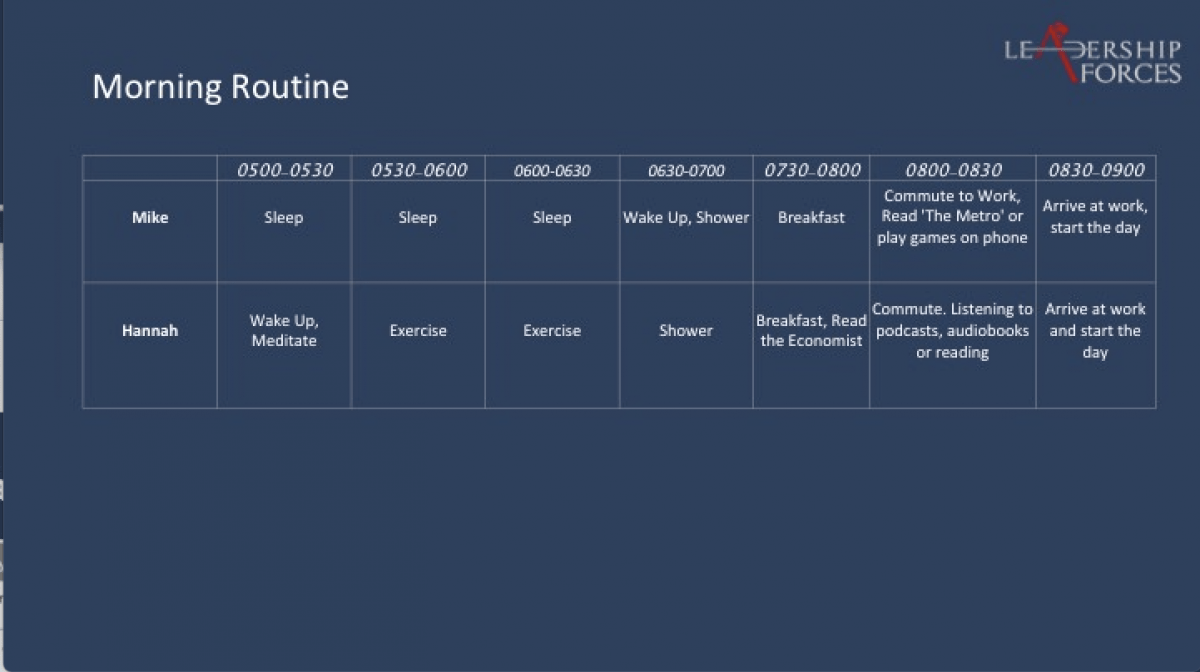
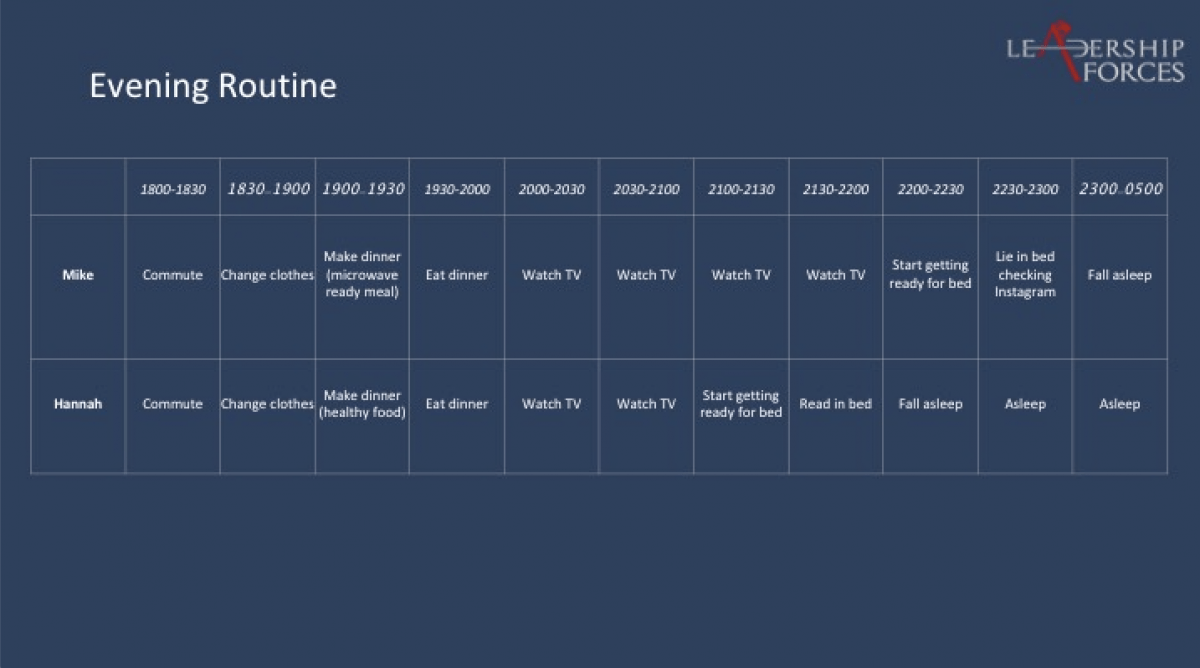
Mike and Hannah both commute 30mins to work and work for the same amount of time. Mike will tell you how busy he is and that he hasn’t got time to read or learn. Hannah knows that there are only 24hrs in the day and you can’t get any more of them. She’s focused on prioritizing activities that are important such as meditation, exercise and sleep. None of these things are a priority but she knows that if she neglects them, she’s likely to encounter problems in the long-term.
These two examples are deliberately extreme to illustrate the point. What do you spend your time on? I am not suggesting that there is anything wrong with watching TV, we all need to relax, but taking the time to carefully consider how you use your most valuable resource (time) is important in helping you chose how to spend it.
3. What do you want to change?
Set the bar for success at a low level and make the change incremental. Don’t compare yourself to anyone else, other than the person you were yesterday. Focus on being slightly better every day.
One of the reasons that people struggle to change is that we set the bar for success very high and struggle to achieve it. We then get disheartened and give up before returning to the same (or worse) state that we were in the first place. This is one of the reasons that New Year’s resolutions usually fail. On January 1st we decide that we are going to be a completely different person, we commit to changing everything about ourselves vowing never to drink beer or eat pizza again. Usually, by the third week of January, we’ve given up, as it’s too difficult.
If you want to successfully change, you have to accept that it is going to take time. Be prepared to commit to the long-haul, accept that it will be difficult and that you will have ups and downs but that ‘giving up’ only leads to one place… back to where you started. Start with small steps. If you want to exercise first thing in the morning, get up and go for a walk. Why, because it’s easy. Start to embed the easy change and then gradually improve on that. If you want to start running, run for a bit until you are out of breath, then walk. Gradually go a little further and allow yourself to adjust. This works for anything that you’re trying to do. If you want to read in bed, commit to reading just ten pages every night. Put your phone charger on the other side of the room so that you have to plug it in elsewhere creating the space for you to read. The long-term impact of this behaviour is a compound interest effect as demonstrated in this graph.
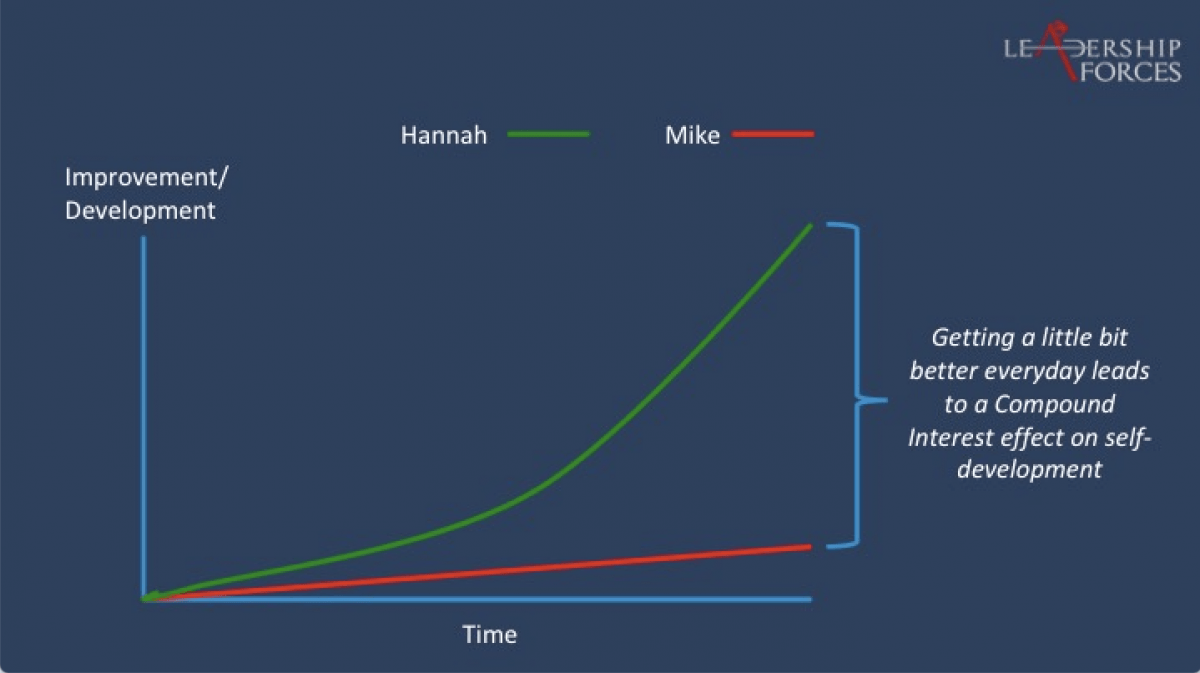
4. How do you Change Behaviour?
Learning to change your own behaviour is one of the most valuable skills a person can develop but it would take too long to cover it in this article. Instead, I am going to signpost a resource for you to read so you can get a deeper understanding of how to change and improve.
The following are taken from James Clear’s brilliant book, Atomic Habits. I thoroughly recommend reading it as it’s the best resource I have found on understanding behaviour and learning how to change it.
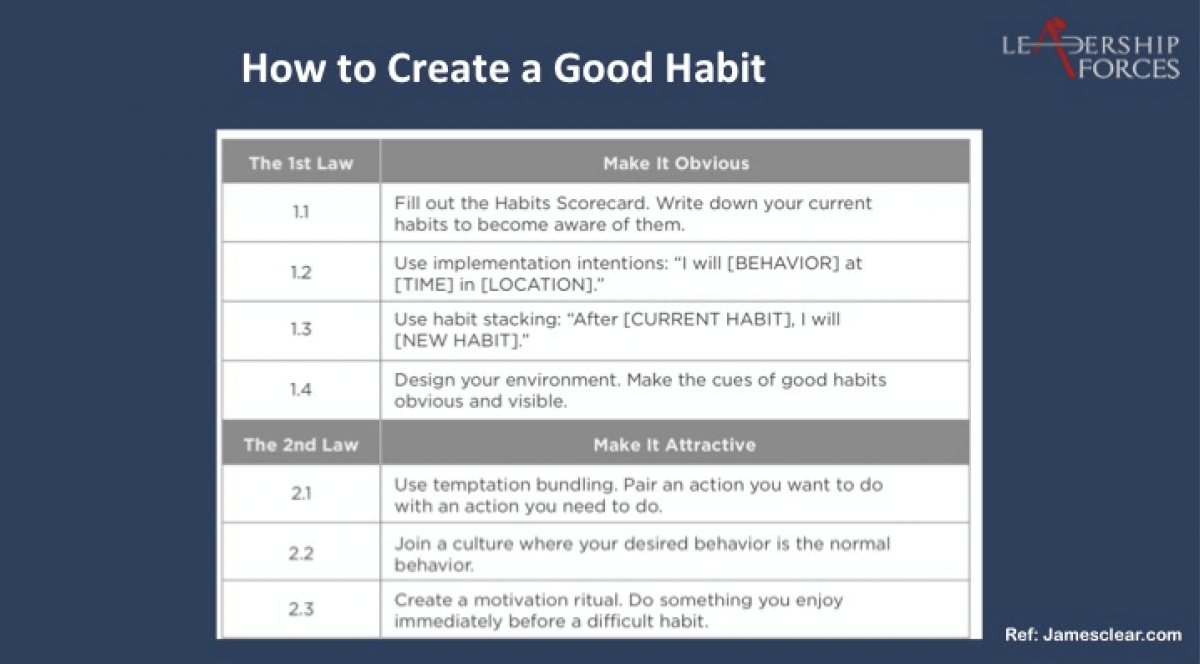
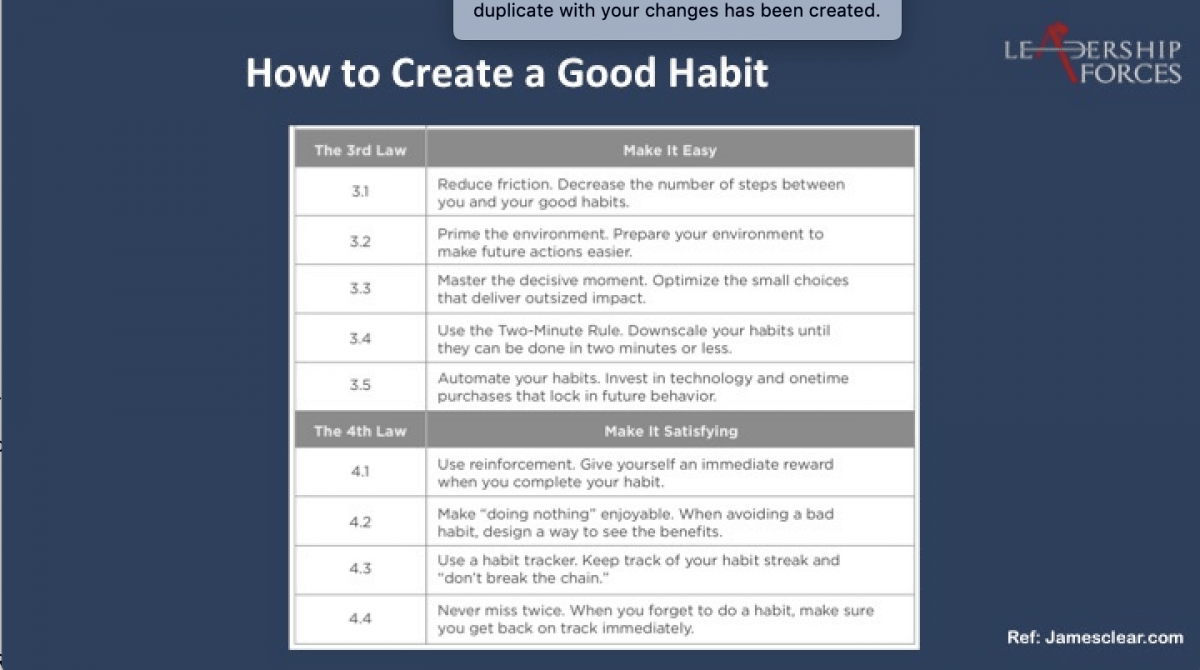
This article has hopefully given you some things to consider. How you spend your time has an enormous impact on your resilience. Are you ‘Mike’ or are you ‘Hannah’ in the example?
The reality is that you’re probably a bit of both from time to time but understanding where you are and then choosing where you want to be is critical in developing your own resilience. I hope that these articles have given you some things to consider and wish you all the best for any changes you have the courage to make.
Remember, compare yourself to who you were yesterday as opposed to anyone else and know that if you give up, you’ll go back to where you started… so don’t give up!
This article is exclusive to The Business Transformation Network.
In case you missed it, you can read Part 1, Part 2, Part 3 or Part 4 of the series here.





